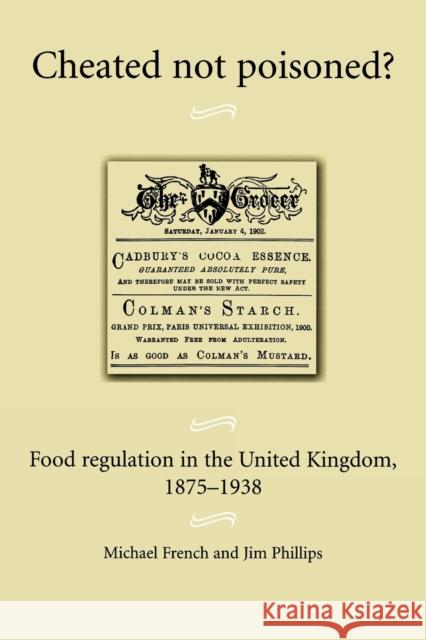Cheated Not Poisoned?: Food Regulation in the United Kingdom, 1875-1938 » książka
Cheated Not Poisoned?: Food Regulation in the United Kingdom, 1875-1938
ISBN-13: 9780719081286 / Angielski / Miękka / 2009 / 220 str.
Newly available in paperback, this book provides the first comprehensive evaluation of Britain's food laws from the 1860s to the 1930s and the first analysis of the Victorian anti-adulteration legislation for over 25 years. The book brings important historical perspectives to the pressing contemporary debate about food safety and the most appropriate forms of regulation by indicating that government policy has historically been shaped by competing business and consumer-protectionist pressures. Through food manufacturing groups and MPs like Jeremiah Colman, along with agricultural organisations, the food business successfully minimised the degree of state control. In a comparative analysis the authors indicate that in this respect the UK legislation resembled the American Pure Food and Drug and Meat Inspection laws. These emerged as a compromise between business and the Federal government after the fierce controversy generated by Upton Sinclair's famous revelations about the Chicago meat industry. A similar compromise emerged in the UK in the 1920s and 1930s, with legislators responding to business pressure by effectively abandoning one of the main original aims of the Victorian laws, the protection of consumers against fraudulently adulterated goods. The new Ministry of Health's decision to defend consumers' health, but not their pockets, satisfied the interests of business. The book will interest teachers, students and general readers concerned with British history and economic and social history, and appeal to specialists in the fields of business history, regulation and food, medicine and nutrition.











